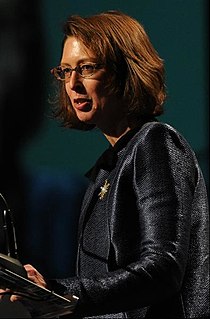A Quote by Chris Larsen
2016 has proven to be the year where the most forward-thinking financial institutions are actually using blockchain technologies for payments and settlement rather than as an experiment.
Related Quotes
We need to come up with use cases for this technology that drive clear benefits for individuals and institutions - these are our customers. Too often we see bitcoin and blockchain technologies as solutions in search of a problem. We don't just need these systems to be technically better than the alternatives - we need them to be more user-friendly.
The blockchain concept was pioneered within the context of crypto-currency Bitcoin, but engineers have imagined many other ways for distributed ledger technology to streamline the world. Stock exchanges and big banks, for example, are looking at blockchain-type systems as trading settlement platforms.
None of this means, however, that a business or stock is an intelligent purchase simply because it is unpopular; a contrarian approach is just as foolish as a follow-the-crowd strategy. What's required is thinking rather than polling. Unfortunately, Bertrand Russell's observation about life in general applies with unusual force in the financial world: "Most men would rather die than think. Many do."
The generals have a saying: "Rather than make the first move it is better to wait and see. Rather than advance an inch it is better to retreat a yard." This is called going forward without advancing, pushing back without using weapons. There is no greater misfortune than underestimating your enemy. Underestimating your enemy means thinking that he is evil. Thus you destroy your three treasures and become an enemy yourself. When two great forces oppose each other, the victory will go to the one that knows how to yield.
































